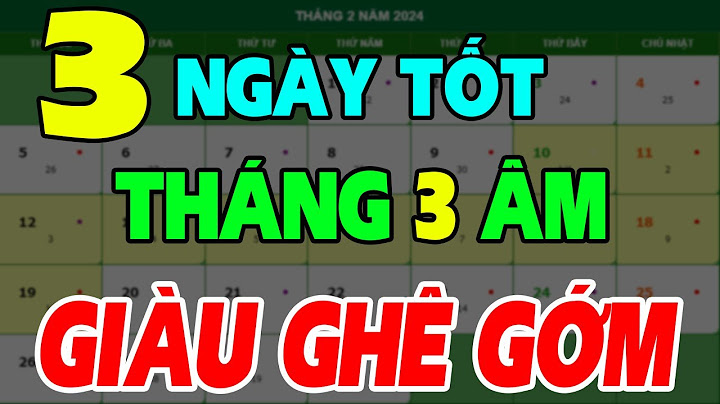Chúng ta dùng các động từ aimer và vouloir ở thức điều kiện hoặc thì hiện tại để đưa ra đề nghị một cách lịch sự. Động từ theo sau aimer và vouloir đều ở dạng nguyên thể. Show
Chúng ta có thể đưa ra đề nghị theo hai cách sau: - Với est-ce que : Ở thức điều kiện: Est-ce que tu aimerais aller à la piscine ? Est-ce que tu voudrais aller au cinéma ? Est-ce que tu veux aller au restaurant ? Est-ce que vous aimeriez visiter ce musée ? Est-ce que vous voudriez aller au cinéma ? Est-ce que vous voulez aller au restaurant ? - Với ngữ điệu (đi lên) : Ở thức điều kiện: Tu aimerais aller à la piscine ? Tu voudrais aller au restaurant ? Tu veux aller au cinéma ? Vous aimeriez visiter ce musée ? Vous voudriez aller au cinéma ? Vous voulez aller à la piscine ? Chúng ta dùng ngôi « tu » để đưa ra đề nghị với những người ta quen thân (gia đình, bạn bè, trẻ em...) Chúng ta dùng ngôi « vous » để đưa ra đề nghị với những người ta không biết (rõ) hoặc với nhiều người (ngôi vous số nhiều) Bài tập thực hànhNgữ pháp: đề nghị với "est-ce que" và với ngữ điệuXem • Ngữ pháp (nghi vấn, hỏi) Despite being a mouthful, it’s an extremely common phrase in both everyday and formal French, and also has several somewhat subtle variants. What’s the deal with qu’est-ce que c’est? Let’s look into this inquisitive phrase! What does Qu’est-ce que c’est mean?Qu’est-ce que c’est means “What (is it)”. It can be used to ask about objects or ideas. It can stand on its own or be used with other words and phrases. The most common translation of qu’est-ce que c’est would therefore be “what is it.” Why do French people say Qu’est-ce que c’est?As an etymology fan, I have to admit that Qu’est-ce que c’est puzzles me. In many languages, as a general rule commonly used words are relatively short, but this one is a major exception. If you break it down, it’s easy to understand where Qu’est-ce que c’est comes from: Que (What (Que takes an apostrophe in this phrase because the following word starts with a vowel)) + est-ce que (is it that) + c’est (this/it is). The good news is that the phrase never changes to reflect gender or number. But why not a one- or two -word “what” instead? I haven’t been able to find any concrete answers in my usual etymology sources. You might point out that there are other ways to say “what” in French, but with the exception of one that we’ll look at a little further on, these are all used in different ways. And so, this surprisingly clunky phrase is a must-know if you want to speak and understand French. Still, don’t worry: you will get used to it. In the meantime, one way to practice could be to break it down the way I did a few paragraphs back, so that you can understand each component of the phrase and what’s really being said. How do you use Qu’est-ce que c’est? There are several slight variants of Qu’est-ce que c’est, and a few different ways to use it. Here are the most common ones you’ll come across. The standalone: Qu’est-ce que c’est ?On its own, Qu’est-ce que c’est ? means “What is it?” or “What is that?” Example: J’ai trouvé ça sous son lit. The question about a concrete noun: Qu’est-ce que c’est + article + nounWhen talking about a physical person, place, or thing, you simply add an article and noun to the end of Qu’est-ce que c’est. For instance: Qu’est-ce que c’est ce tableau ? (What’s this painting?) Qu’est-ce que c’est un taco? (What is a taco?) An interesting side observation: Because French children also have to get used to using Qu’est-ce que c’est and its variants, you’ll often hear them use this one when asking about both concrete and abstract nouns. The question about an abstract noun: Qu’est -ce que + article +noun?When talking about abstract ideas and topics, you drop the c’est from Qu’est-ce que c’est. For instance: Qu’est -ce que la philosophie ? What is philosophy? Qu’est-ce que l’amour ? What is love? When dealing with abstract topics, you’ll often see this phrase replaced with a more familiar, somewhat easier interrogative phrase: C’est quoi – for instance, C’est quoi l’amour ? We’ll talk more about c’est quoi further on in this article. The question with a verb: Qu’est-ce que + subject + verbAs with the last example, the c’est in qu’est-ce que c’est is replaced by something else – in this case, a subject and a verb or a phrase with a verb. Here are some examples: Qu’est-ce qu’il veut ? (What does he want?) The What is this/that ___? with emphasis: Qu’est-ce que c’est que____ ?In this variant, the core phrase Qu’est-ce que has c’est que added to it. It’s most common incarnation is the phrase Qu’est-ce que c’est que ça ?, meaning “What is this?” or “What is that?” As the phrase’s length might show, it’s often used to indicate a sense of emphasis or surprise. Because Qu’est-ce que c’est que __ typically indicates some kind of emphasis or strong feeling, the meaning of phrases used with it can sometimes vary depending on tone or context. For instance: Qu’est-ce que c’est que ce film ? (What movie are you watching? or What the heck kind of movie is this?/What on earth am I watching?) In everyday informal French, you may also hear this phrasing used for questions in general, even if there’s no particular emphasis or stress implied. For instance, if you do an online search for Qu’est-ce que c’est que, you’ll come across autocomplete answers like the examples here, as well as for neutral questions like Qu’est-ce que c’est que le crowdfunding ? When you click, you’ll find that the results instead use the abstract noun question form Qu’est -ce que + article +noun: Qu’est-ce que le crowdfunding. The exclamation : Qu’est-ce que + subject + verb (+phrase)!Sometimes, Qu’est-ce que is part of a phrase that isn’t exactly a question. Saying Qu’est-ce que followed by a subject and verb and additional words is a way to emphasize a statement. Think of it as a rough equivalent to the English phrase “Isn’t it/he/she ___?” or “How __ it/he/she is!” For instance: Qu’est-ce qu’il est beau ! (Isn’t he handsome!) The action change-up: Qu’est-ce qui ____?What if you want to ask a question with a subject that does something? For instance, “What’s making that noise?” In this case, the final que becomes qui: Qu’est-ce qui fait ce bruit ? In French, even if you’re talking about an inanimate object or idea, it needs a sort of life or agency, grammatically speaking, to perform an action. So, que (what) becomes qui (who), even if qui isn’t referring to a living being. The most common way you’ll see this variant used is in the extremely common phrase Qu’est-ce qui se passe ? (What’s happening?/What’s going on?) Here, the qui refers to an event or state of being, not a living being. Another common one is Qu’est-ce qui t’arrive ? (What’s happening to you?/What’s happened to you?) You can learn more about qu’est-ce que and its variants in this impressively thorough Wiktionnaire entry. A risky alternative to Qu’est-ce que c’est: C’est quoi (ça) ? Although you will get used to it (I promise!), you might be worried that when you first start having conversations in French, you’ll forget the exact phrasing of qu’est-ce que (c’est). Fortunately, there is an alternative if you really need one – but it comes at a price. C’est quoi ? (literally: It’s what?) essentially means the same thing as Qu’est-ce que (c’est), and C’est quoi, ça ? more or less means the same thing as Qu’est-ce que c’est que ça ? C’est quoi is easy to use: just add an article and noun, or a verb (or in certain cases an adjective) after it, like so:
See? Simple. But as I mentioned before, using C’est quoi instead of Qu’est-ce que c’est isn’t a perfect solution. In most contexts, C’est quoi is, at best, informal. For instance, you’ll often see it used to phrase questions on shows, websites, etc, that are meant to be friendly or for children. In other contexts, it can be downright rude or vulgar-sounding. The same goes for replacing Qu’est-ce que with quoi in phrases like Qu’est-ce que tu aimes faire ?. Tu aimes faire quoi ? Can sound familiar/friendly, informal, or even rude or derogatory, depending on tone and context. For instance, if someone gives me a gift and I take the wrapped package and say, Qu’est-ce que c’est ?, we understand that I’m surprised and curious, maybe excited as well. But in most cases, asking C’est quoi ?, unless I’m a young child, would imply annoyance, impatience, or disdain for the gift or the person giving it. If the person and I know each other very well and it’s clear that I wouldn’t feel any of these negative sentiments, C’est quoi ? could be used, but even then, I’d have to be really confident that there could be no misunderstanding. So, that said, there are always exceptions – for instance, referring to something that isn’t present/concrete is less likely to be rude (C’est quoi la liberté ? vs C’est quoi ce gâteau ?) but in general, be cautious with C’est quoi and try to opt for something else. As for using quoi at the end of a phrase like Tu voudrais faire quoi ?, that’s often a bit more polite than C’est quoi ? and is usually considered familiar/informal rather than rude, but it depends on things like tone and context, as well. Now you may be thinking, C’est quoi ce bordel ? (What’s this shit?). But by listening to enough French people, whether in real life or in movies and TV shows, you’ll quickly be able to differentiate between a rude C’est quoi and a neutral one. That said, if you slip up, people will probably give you a pass, since you’re not a native French speaker. But the better you get at French, the less likely they are to let you get away with it without at least an afterthought. That’s why it’s best to know Qu’est-ce que c’est and its variants. How to practice Qu’est-ce que c’est and its variantsAs with just about any French vocabulary, the best way to remember and get familiar with using Qu’est-ce que c’est and its variants is by listening to, reading, and speaking French. It’s such a common phrase that you’ll come across it often. When you get a chance to use it in conversation, whether it’s with someone you’ve just met, a French friend or colleague, or a French conversation partner, go for it! Even if you don’t get it perfectly right, you’re unlikely to make a faux pas, which can’t be said for using C’est quoi instead. And trust me, you will get used to seeing, hearing, and using it really quickly. It’s all a matter of practice. Though it’s a bit clunky, Qu’est-ce que c’est and its variants are important and very common French question phrases. Luckily, with a little practice, those words will start coming naturally. Qu’est-ce que c’est rassurant ! (How reassuring!). Qui est ce que là gì?QUI EST-CE QUE khi muốn hỏi túc từ (không phải. chủ từ) là người. (giống QUI) - QUI EST-CE QUE vous voyez? (Bạn thấy ai vậy?) Ce que là gì?Ce que trong Tiếng Pháp:Được dùng trong câu hỏi gián tiếp, là câu kể lại hay thuật lại cho ai đó nghe những gì người khác hỏi. Cái gì dạy tiếng Pháp?Cái gì đây? C'est quoi ça? |





















